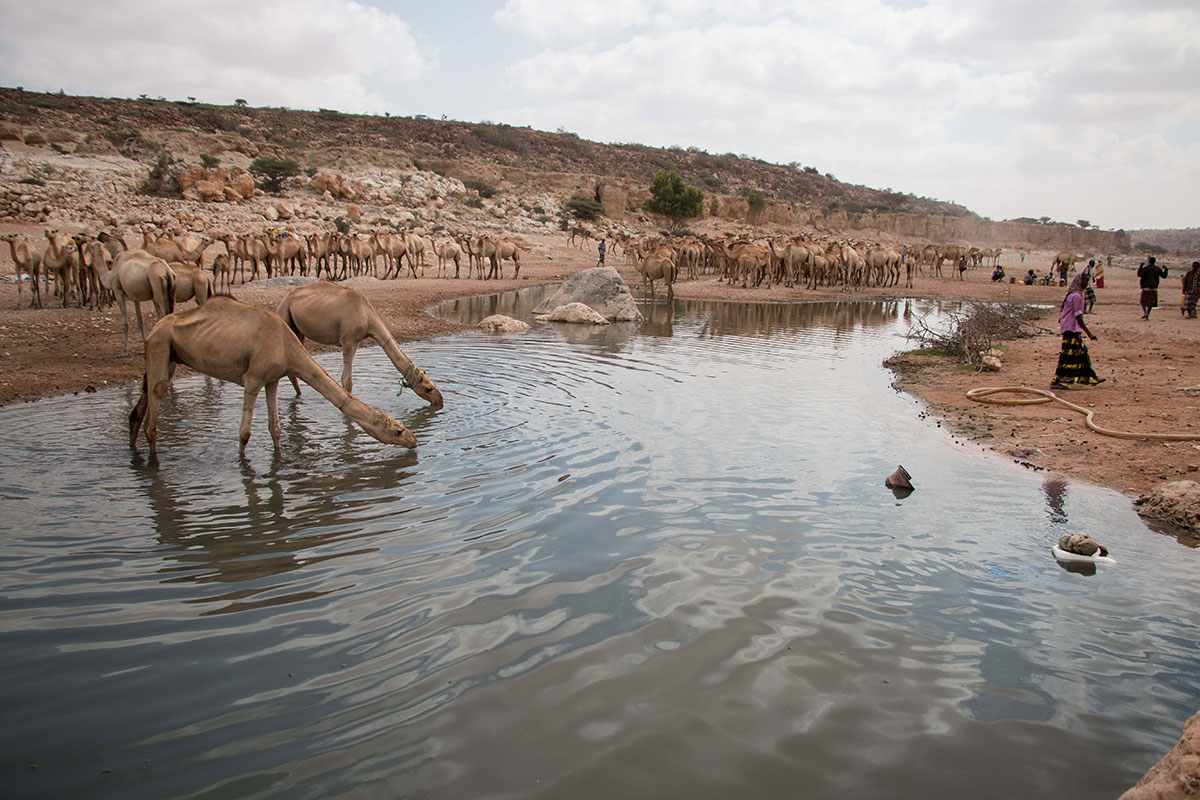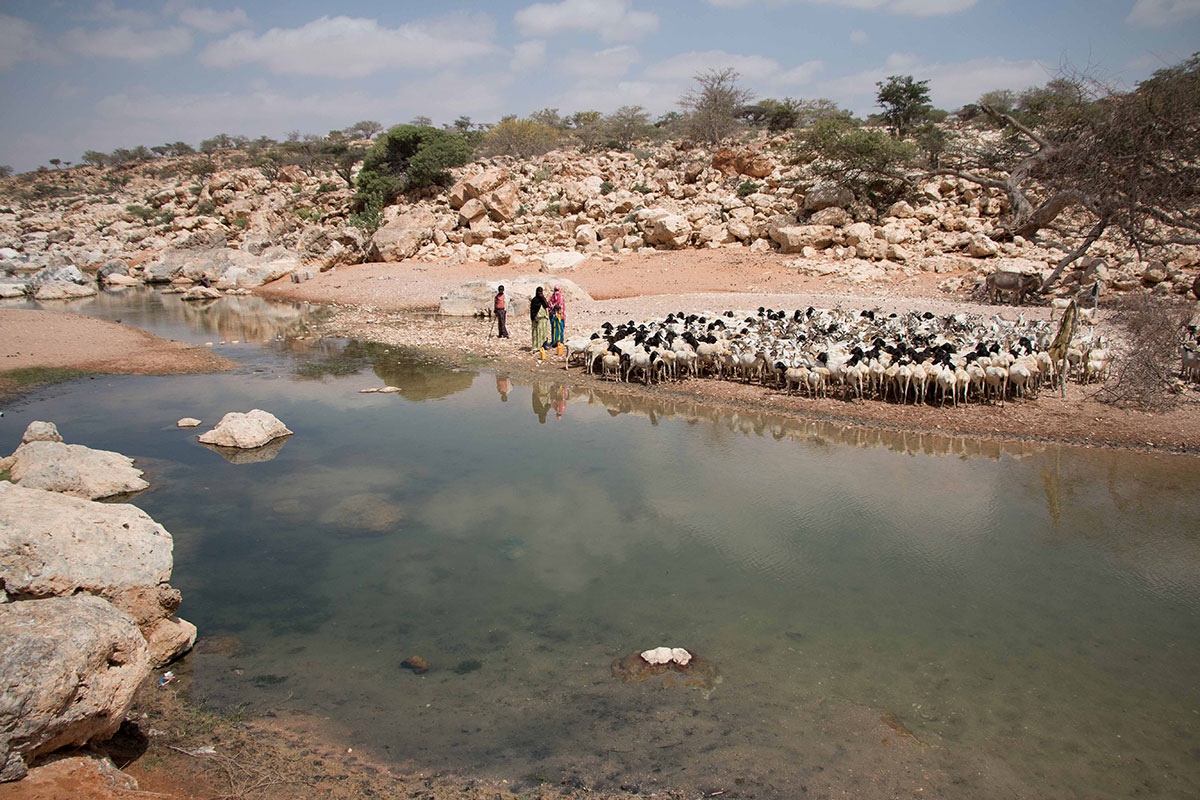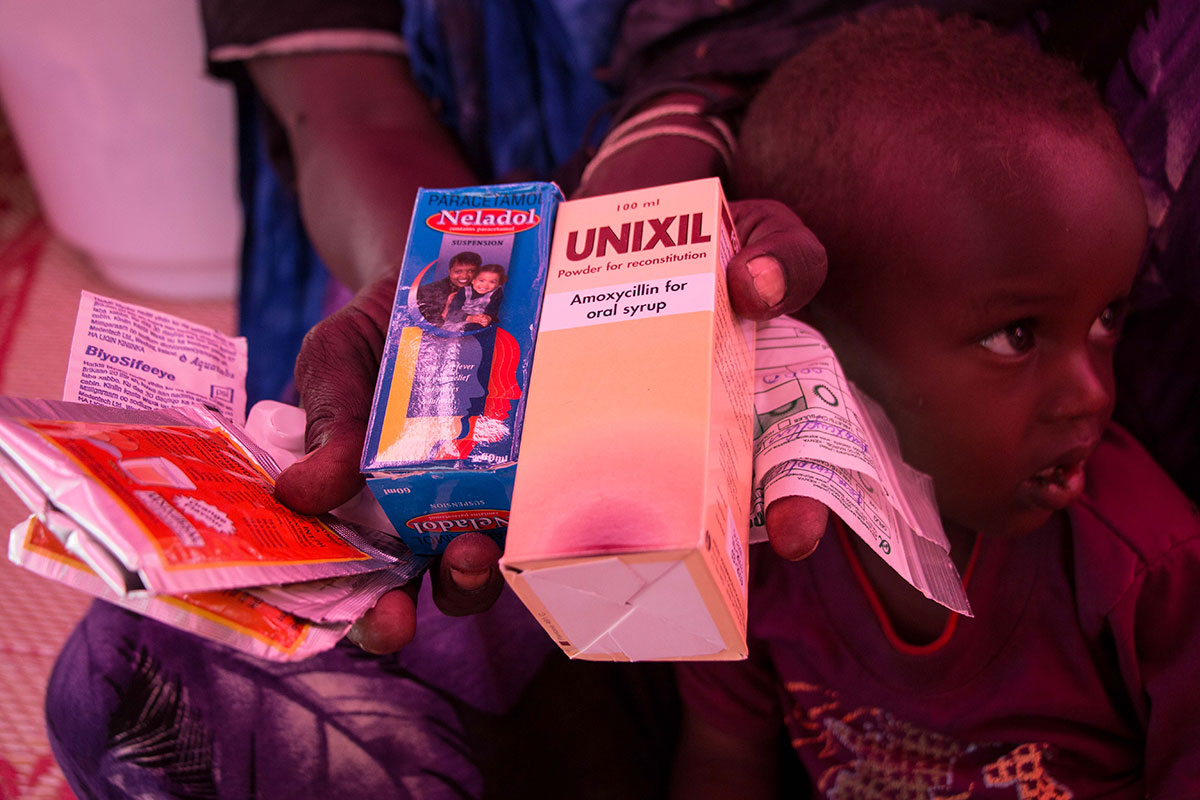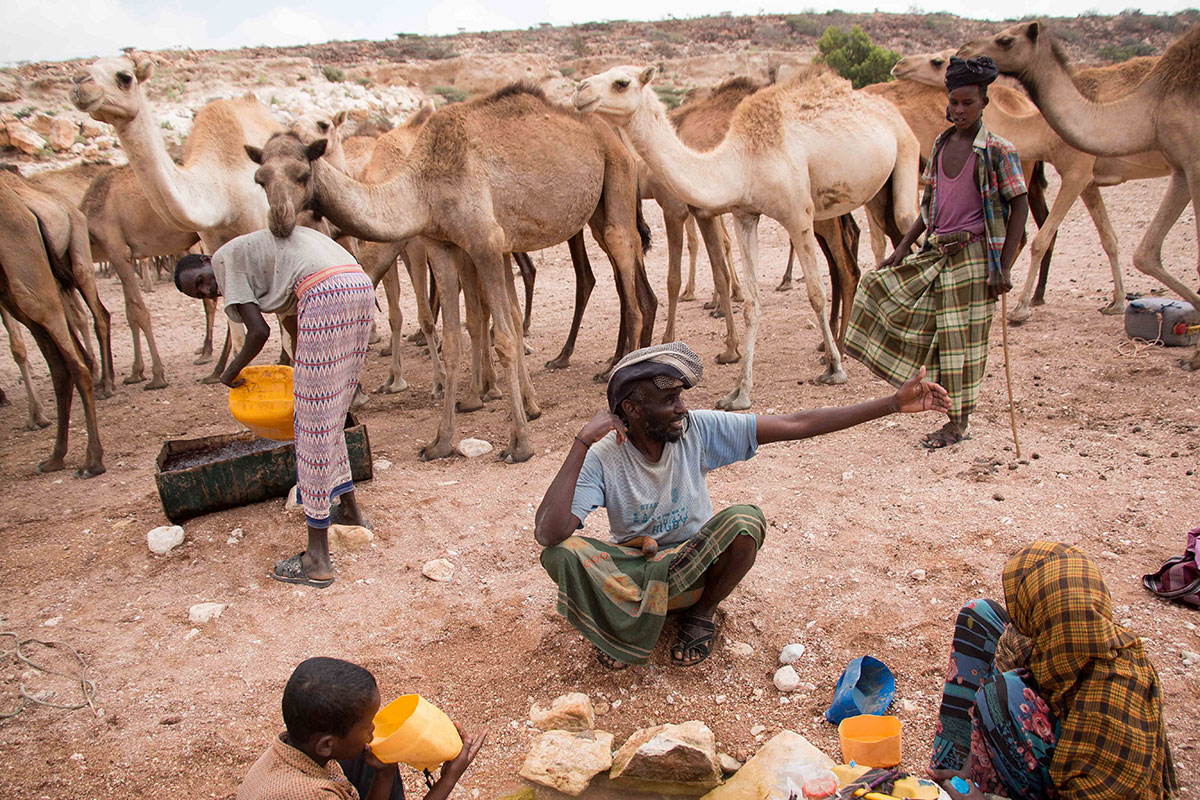
- Merkel set for fourth term as chancellor as CDU leads parliamentary vote, exit polls say
- Turkey says it will send back ISIS prisoners even if citizenships revoked
- General Marchenko: ‘Mykolaiv was to be next city to fall, but Russia terribly failed’
- Ukrainian Armed Forces repel enemy attacks in four regions
- Somalia president hails lifting of arms embargo as government vows to wipe out al-Shabab militants
- Captured Somali pirates arrive in India to face trial over ship hijacking
- Martyred while serving nation: President Raisi dies in helicopter crash
- Stay Connected
Thousands forced to move as drought strikes Puntland

The diminishing stream at Dhudo, Bandar Bayla district in eastern Puntland. It is currently the only running water source within a 75km radius. [Ashley Hamer/Al Jazeera]

Pastoralists in Dhudo village, Bandar Bayla, bring their camels from up to 80km away to drink. [Ashley Hamer/Al Jazeera]

People have travelled many hundreds of kilometres to bring their surviving herds to areas of Somalia where there is still pasture and a water source. [Ashley Hamer/Al Jazeera]

The rains that fed Bandar Bayla district in December have not returned and the pasture that flourished briefly has all but dried up, leaving pastoralists desperate and many miles from their home regions. [Ashley Hamer/Al Jazeera]

Ahmed Osman and his son Mohamed, who come from the Nugaal region of Puntland, seek medical care for Mohamed in Dhudo, where a small clinic is serving pastoralist families affected by malnutrition. [Ashley Hamer/Al Jazeera]

Small mobile clinics run by Puntland’s Ministry of Health and some supported by NGOs provide limited services and medication to the people of the region. [Ashley Hamer/Al Jazeera]
Nomads bring their camels to a point in Bandar Bayla where local water trucks sell fresh water brought into the desert from Dhudo. [Ashley Hamer/Al Jazeera]

Abdirizak Farah collects water from a pool in the rivulet at Dhudo village in Bandar Bayla district. He says he brought his goats from Nugaal region, some 200km away, chasing pasture nearer to the coast. [Ashley Hamer/Al Jazeera]

Shaxade displacement site in central Puntland mostly shelters women and children. The men have left along with their livestock in search of greener pasture. [Ashley Hamer/Al Jazeera]

Abdullahi Farah is sheltering at Shaxade displacement site after leaving her home in southern Puntland when most of her animals died and her husband was forced to move the remaining herds to the coast. She built her own shelter and brought her youngest children with her. [Ashley Hamer/Al Jazeera]

Makeshift displacement sites are growing on the fringes of towns in Puntland, where pastoralists are forced to migrate to. Conditions are harsh and unhygienic, with growing risks of water-borne diseases. [Ashley Hamer/Al Jazeera]

A malnutrition ward in Garowe hospital, one of only three specialised feeding facilities in all of Puntland. [Ashley Hamer/Al Jazeera]

Families are being separated in order to survive with women, children and the elderly making their way to the edges of towns while husbands and sons take the surviving livestock hundreds of kilometres to find pasture. [Ashley Hamer/Al Jazeera]
Source:Aljazeera/English
All News
- Erdoğan unveils Turkey’s plan to build a spaceport in Somalia: report
- Israeli genocide in Gaza sees death toll cross grim 44,000 mark
- Lebanon’s housing sector crumbles, rental demand surges amid Israel-Hezbollah war
- Russia Fired Experimental Hypersonic Missile at Ukraine in Response to Western Long-Range Missiles – Putin
- ICC slaps Netanyahu, Gallant with arrest warrants for war crimes
- Donald Trump expected to consider recognizing Somaliland independence, former UK defense minister says
- US embassy in Kyiv shutters after ‘significant’ air attack threat By Tamsin Paternoster
- Opposition leader wins Somaliland presidential contest
- Israeli strikes rattle Beirut, as peace talks begin to take shape
- Zelenskyy says ‘missiles will speak for themselves’ as Biden OKs long-range use
- Home
- Merkel set for fourth term as chancellor as CDU leads parliamentary vote, exit polls say
- Turkey says it will send back ISIS prisoners even if citizenships revoked
- General Marchenko: ‘Mykolaiv was to be next city to fall, but Russia terribly failed’
- Ukrainian Armed Forces repel enemy attacks in four regions
- Somalia president hails lifting of arms embargo as government vows to wipe out al-Shabab militants
- Captured Somali pirates arrive in India to face trial over ship hijacking
- Martyred while serving nation: President Raisi dies in helicopter crash
- RSS
Contact@kasmaal.com
